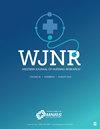Jaclene A Zauszniewski, Christopher J Burant, Evanne Juratovac, Alexandra Jeanblanc, John S Sweetko, Catherine Larsen, Rayhanah Almutairi, Hang Ying She, Evelina DiFranco, Kari Colon-Zimmerman, Martha Sajatovic
求助PDF
{"title":"获取机智技能:正式培训与非正式培训。","authors":"Jaclene A Zauszniewski, Christopher J Burant, Evanne Juratovac, Alexandra Jeanblanc, John S Sweetko, Catherine Larsen, Rayhanah Almutairi, Hang Ying She, Evelina DiFranco, Kari Colon-Zimmerman, Martha Sajatovic","doi":"10.1177/01939459241296613","DOIUrl":null,"url":null,"abstract":"<p><strong>Background: </strong>Although resourcefulness has been successfully taught during formal training programs, it can also be acquired informally through life experiences. Family caregivers have many opportunities for learning to be resourceful on their own and those who participate in research may acquire knowledge or skills that increase their resourcefulness. The effects of such differential experiences on the resourcefulness of family caregivers have not been examined over time.</p><p><strong>Objective: </strong>This study compared changes in resourcefulness over time in caregivers who received no intervention, an educational program, biofeedback, or Resourcefulness Training<sup>©</sup>.</p><p><strong>Methods: </strong>This longitudinal analysis of data from a randomized controlled trial involved 219 caregivers of persons with bipolar disorder who completed the Resourcefulness Scale<sup>©</sup> before no intervention, an educational program, biofeedback, or Resourcefulness Training, and at 6 and 12 months afterward. Differences across the groups were examined using RMANOVA. Patterns of mean scores including differences and linear trends in resourcefulness for the four groups were examined.</p><p><strong>Results: </strong>Overall, caregivers increased linearly in resourcefulness over time [<i>F</i>(1,215) = 4.836, <i>P</i> = .015]. Although each group showed improvement in resourcefulness, caregivers who received Resourcefulness Training showed the greatest improvement from baseline (estimated mean = 88.244, SE = 2.734) at both 6 months (estimated mean = 92.610, SE = 2.813, <i>P</i> = .026) and 12 months post-intervention (estimated mean = 95.049, SE = 2.752, <i>P</i> = .003).</p><p><strong>Conclusions: </strong>Consistent with resourcefulness theory, the findings showed caregivers of persons with bipolar disorder became more resourceful over time with or without formal training. However, those who received Resourcefulness Training demonstrated resourcefulness skills sooner and to a greater extent, thereby providing the rationale for formal Resourcefulness Training programs.</p>","PeriodicalId":49365,"journal":{"name":"Western Journal of Nursing Research","volume":" ","pages":"5-14"},"PeriodicalIF":2.0000,"publicationDate":"2025-01-01","publicationTypes":"Journal Article","fieldsOfStudy":null,"isOpenAccess":false,"openAccessPdf":"","citationCount":"0","resultStr":"{\"title\":\"Acquiring Resourcefulness Skills: Formal Versus Informal Training.\",\"authors\":\"Jaclene A Zauszniewski, Christopher J Burant, Evanne Juratovac, Alexandra Jeanblanc, John S Sweetko, Catherine Larsen, Rayhanah Almutairi, Hang Ying She, Evelina DiFranco, Kari Colon-Zimmerman, Martha Sajatovic\",\"doi\":\"10.1177/01939459241296613\",\"DOIUrl\":null,\"url\":null,\"abstract\":\"<p><strong>Background: </strong>Although resourcefulness has been successfully taught during formal training programs, it can also be acquired informally through life experiences. Family caregivers have many opportunities for learning to be resourceful on their own and those who participate in research may acquire knowledge or skills that increase their resourcefulness. The effects of such differential experiences on the resourcefulness of family caregivers have not been examined over time.</p><p><strong>Objective: </strong>This study compared changes in resourcefulness over time in caregivers who received no intervention, an educational program, biofeedback, or Resourcefulness Training<sup>©</sup>.</p><p><strong>Methods: </strong>This longitudinal analysis of data from a randomized controlled trial involved 219 caregivers of persons with bipolar disorder who completed the Resourcefulness Scale<sup>©</sup> before no intervention, an educational program, biofeedback, or Resourcefulness Training, and at 6 and 12 months afterward. Differences across the groups were examined using RMANOVA. Patterns of mean scores including differences and linear trends in resourcefulness for the four groups were examined.</p><p><strong>Results: </strong>Overall, caregivers increased linearly in resourcefulness over time [<i>F</i>(1,215) = 4.836, <i>P</i> = .015]. Although each group showed improvement in resourcefulness, caregivers who received Resourcefulness Training showed the greatest improvement from baseline (estimated mean = 88.244, SE = 2.734) at both 6 months (estimated mean = 92.610, SE = 2.813, <i>P</i> = .026) and 12 months post-intervention (estimated mean = 95.049, SE = 2.752, <i>P</i> = .003).</p><p><strong>Conclusions: </strong>Consistent with resourcefulness theory, the findings showed caregivers of persons with bipolar disorder became more resourceful over time with or without formal training. However, those who received Resourcefulness Training demonstrated resourcefulness skills sooner and to a greater extent, thereby providing the rationale for formal Resourcefulness Training programs.</p>\",\"PeriodicalId\":49365,\"journal\":{\"name\":\"Western Journal of Nursing Research\",\"volume\":\" \",\"pages\":\"5-14\"},\"PeriodicalIF\":2.0000,\"publicationDate\":\"2025-01-01\",\"publicationTypes\":\"Journal Article\",\"fieldsOfStudy\":null,\"isOpenAccess\":false,\"openAccessPdf\":\"\",\"citationCount\":\"0\",\"resultStr\":null,\"platform\":\"Semanticscholar\",\"paperid\":null,\"PeriodicalName\":\"Western Journal of Nursing Research\",\"FirstCategoryId\":\"3\",\"ListUrlMain\":\"https://doi.org/10.1177/01939459241296613\",\"RegionNum\":4,\"RegionCategory\":\"医学\",\"ArticlePicture\":[],\"TitleCN\":null,\"AbstractTextCN\":null,\"PMCID\":null,\"EPubDate\":\"2024/11/13 0:00:00\",\"PubModel\":\"Epub\",\"JCR\":\"Q2\",\"JCRName\":\"NURSING\",\"Score\":null,\"Total\":0}","platform":"Semanticscholar","paperid":null,"PeriodicalName":"Western Journal of Nursing Research","FirstCategoryId":"3","ListUrlMain":"https://doi.org/10.1177/01939459241296613","RegionNum":4,"RegionCategory":"医学","ArticlePicture":[],"TitleCN":null,"AbstractTextCN":null,"PMCID":null,"EPubDate":"2024/11/13 0:00:00","PubModel":"Epub","JCR":"Q2","JCRName":"NURSING","Score":null,"Total":0}
引用次数: 0
引用
批量引用
Acquiring Resourcefulness Skills: Formal Versus Informal Training.
Background: Although resourcefulness has been successfully taught during formal training programs, it can also be acquired informally through life experiences. Family caregivers have many opportunities for learning to be resourceful on their own and those who participate in research may acquire knowledge or skills that increase their resourcefulness. The effects of such differential experiences on the resourcefulness of family caregivers have not been examined over time.
Objective: This study compared changes in resourcefulness over time in caregivers who received no intervention, an educational program, biofeedback, or Resourcefulness Training© .
Methods: This longitudinal analysis of data from a randomized controlled trial involved 219 caregivers of persons with bipolar disorder who completed the Resourcefulness Scale© before no intervention, an educational program, biofeedback, or Resourcefulness Training, and at 6 and 12 months afterward. Differences across the groups were examined using RMANOVA. Patterns of mean scores including differences and linear trends in resourcefulness for the four groups were examined.
Results: Overall, caregivers increased linearly in resourcefulness over time [F (1,215) = 4.836, P = .015]. Although each group showed improvement in resourcefulness, caregivers who received Resourcefulness Training showed the greatest improvement from baseline (estimated mean = 88.244, SE = 2.734) at both 6 months (estimated mean = 92.610, SE = 2.813, P = .026) and 12 months post-intervention (estimated mean = 95.049, SE = 2.752, P = .003).
Conclusions: Consistent with resourcefulness theory, the findings showed caregivers of persons with bipolar disorder became more resourceful over time with or without formal training. However, those who received Resourcefulness Training demonstrated resourcefulness skills sooner and to a greater extent, thereby providing the rationale for formal Resourcefulness Training programs.

 求助内容:
求助内容: 应助结果提醒方式:
应助结果提醒方式:


